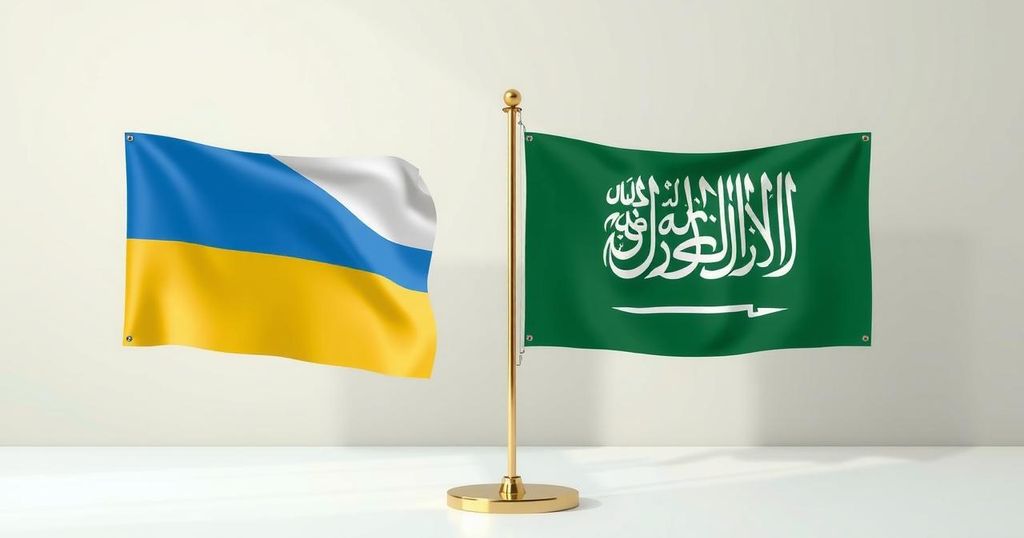Ukrainian President Zelenskyy has announced upcoming U.S.-Ukraine talks in Saudi Arabia to discuss peace efforts amidst ongoing conflict. Concurrently, EU leaders have endorsed new defense spending plans aimed at bolstering European security in light of changing U.S. support dynamics. Despite challenges in coordination, the commitment to increase military expenditures highlights a significant shift in strategy to respond to current threats.
Ukrainian President Volodymyr Zelenskyy announced that discussions between Ukraine and the United States regarding the resolution of the ongoing war will occur in Saudi Arabia next week. In his recent address, he stated that he plans to visit Saudi Arabia on Monday and his delegation will continue the dialogue with U.S. officials post-meeting. “Ukraine is most interested in peace,” Zelenskyy asserted, highlighting the significance of these talks.
Amid concerns over potential shifts in U.S. policy, European Union leaders convened in Brussels to strategize new defense spending initiatives aimed at enhancing European security. They commenced discussions about altering budget restrictions to enable member nations to bolster military expenditures, potentially unlocking approximately 650 billion euros ($702 billion).
The leaders also noted a proposal to provide a loan package valued at 150 billion euros ($162 billion) for new military acquisitions. Despite some dissent, all EU leaders affirmed that negotiations regarding Ukraine must include Ukraine itself and emphasized the necessity of European involvement in security discussions.
Recent actions by the Trump administration have raised alarms regarding the reliability of the U.S. as a security partner, prompting the EU to reassess its defense strategies. “Europe must take up this challenge … and it must win,” remarked Polish Prime Minister Donald Tusk, signaling a commitment to strengthening Europe’s military capabilities.
Ukrainian President Zelenskyy expressed appreciation for the EU’s commitment to redefine defense expenditures, noting it could aid Ukraine’s defense industry, which produces military equipment more affordably. He affirmed, “We are very thankful that we are not alone, and these are not just words. We feel it.”
The call for increased defense spending marks a significant shift from European postures following the Cold War. French President Emmanuel Macron indicated that this initiative would facilitate joint funding for cutting-edge military resources. EU officials are working to ensure that countries facing financial strain are supported during this transition.
As discussions continue, pressing security needs in Ukraine remain paramount, particularly in light of recent missile strikes from Russia. The ongoing urgency for military supplies is amplified by the recent pause of U.S. military assistance. Nonetheless, the summit’s agenda did not focus on addressing these pressing supply demands, highlighting the complexities facing EU member states as they strive for a unified response.
Overall, the upcoming discussions and the EU leaders’ commitments reflect an evolving landscape in European security and defense strategy amid ongoing challenges posed by the conflict in Ukraine.
In summary, President Zelenskyy has initiated vital discussions between Ukraine and the United States aimed at expediting peace negotiations in Saudi Arabia. Concurrently, European leaders have taken decisive steps to enhance defense funding and military capabilities, acknowledging the pressing need for increased security in the face of recent geopolitical shifts. While challenges persist regarding unity and military supplies, the commitment to bolster European defenses illustrates a significant evolution in response to current threats. These developments underscore the complexities of international diplomacy and the necessity of collaboration in ensuring regional stability.
Original Source: www.tricitynews.com




